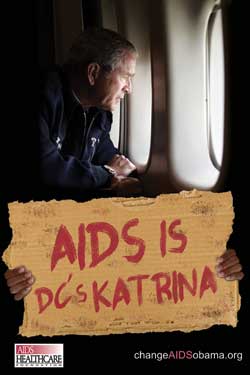Political discourse in America is at a frightening crossroads, and as a people we’ve been standing in the intersection turning the map this way and that trying to figure out which way to go for quite some time now. This is not news. I am not the first person to point this out. Liberal pundits and actual journalists point this out on a regular basis multiple times a day.
And even though I’m not involved in the townhall fracases that the media have been orgasming over all summer, I still find myself affected by this creeping paralysis of thought. It’s hard not to be. I work for a progressive environmental organization, “my” party is in power in both the executive and legislative branches of the Federal government, and DC is flooded, much as it was in the mid-90s, with the young and the enthusiastic who want to change the world for the betterment of all not just for the betterment of the white, middle-class, and heterosexual. It should be a great time. Yet that closed mindedness that has lead to fist fights, shouting matches, and, at one recent meeting, the loss of body parts isn’t just happening on the right. There is a pervasive undercurrent, at least among the progressives I know, that people who disagree with them aren’t to be trusted. The problem, rightly unpacked into the three Ls (labels, lifestyle, and listening), boils down to one of time. All of the labels, all of the technology, allow us to short-cut the opinion forming process. They, plus party affiliation, are the moral equivalent of TV dinners in a world that requires slow-cooked, gourmet meals. Since identifying the problem is but the first step toward a solution I’ve been wondering:
What is the best way to maintain an open mind?
In his article on CNN.com Rudy Ruiz recommends the following:
For starters, we should eschew the notion that changing our minds is a character flaw. To the contrary, experts believe it’s a manifestation of higher intelligence. Renowned psychologist Stuart Sutherland wrote in “Irrationality,” his seminal 1992 book: “The willingness to change one’s mind in the light of new evidence is a sign of rationality not weakness.”
To further free our minds, we should aggressively treat the three Ls:
Let’s lose the labels: from “flip-flopper” to “commie,” from “fear-monger” to “right-wing nut job.” Trash the diatribe; mull the ideas.
Let’s engage in some constructive lifestyle management, slowing down to ponder — and make independent decisions — as enlightened people. We cannot allow the technological evolution to rob us of the intellectual strides of the American Revolution.
We must value the art of listening, reflection, comparative analysis, and civil discourse if we’re to make the most of our democracy. In the process, we should signal to leaders that we’re willing to expand our horizons beyond party lines. Maybe they’ll get in front of our parade, collaborating for a change.
Let’s request a second opinion and listen to each other. Switch channels. Visit different Web sites. Read a newspaper, while we can still find one. How about stepping into a town hall with an open mind, prepared to converse with people hailing from diverse circumstances? A range of perspectives enriches our viewpoint, empowering us to craft nuanced responses to complex situations.
Ultimately, we must stop thinking that the only thing to think is what we’ve thought all along. As we learn more about multifaceted matters, our positions should evolve accordingly. Let’s accept that it’s OK to change your minds.
Most of this is good advice. I’d argue that the polarization of debate has so infected the media that it is impossible to find anything of value from media outlets that you aren’t already inclined to browse (honestly: if you normally get your news from Rachel Maddow watching Glenn Beck isn’t going to inform, it’s just going to raise your blood pressure to dangerous levels).
But Ruiz hits on something when he writes that we should slow down, that we should take time to listen and reflect. What he misses is the examination of existing opinions and beliefs and our commitment to them even without new facts. Take for example this meme that has been going around the progressive circles in which I run:
No one should die because they cannot afford health care, and no one should go broke because they get sick. (RT if you agree)
This is something that I both retweeted and posted to my Facebook status yesterday. It’s a concept that I happen to agree with and it’s one that I believe is based on compassion. Yet there arises the question: At what point do your poor lifestyle choices – alcohol abuse, drug use, poor nutrition, lack of exercise to name a few – that adversely affect your health cease to be the object of compassion and become solely your problem?

It’s easy to see that it plays on a particular progressive – because yes, there are people out there “on the right” who believe that New Orleans, and its people, got what it deserved – mindset that sees the massive government corruption and institutional racism that was manifest in how Dubya’s administration handled the disaster that was Katrina. And it’s easy to let that knee-jerk feeling of agreement wash over you. Yet, the two situations, when you slow down and examine them aren’t the same at all.
Katrina was a natural disaster. Its path and course measurable and vaguely predictable. A lot of the ramifications of Katrina – the flooding, the wind damage – were foreseeable (New Orleans is, after all, below sea level), and a lot of the problems that afflicted the people of New Orleans during and directly after the storm hit are a direct result of living in poverty. But the reality is that we could have done absolutely nothing to stop the storm, or the flooding, or any of the other physical damage that happened as a result of Katrina. The only thing better handling of the situation could have done was mitigate the effects on the people. The same is not true of AIDS.

These situations aren’t even marginally comparable. So why as a person who subscribes to the progressive view point that Katrina was badly handled am I expected to automatically believe and support the idea that “AIDS is DC’s Katrina?” The answer is I shouldn’t be, but that’s what the labeled viewpoint would have me do.
As a total sidebar I’d like to propose a corollary in progressive circles to Godwin’s Law: When you have to resort to invoking Katrina, you’re essentially saying that you have not thought out your argument.
The only real way to know what I think is to actually think it myself. Not to let any pundit or reporter, no matter how cute, or politician, no matter how charismatic, think it for me. Key to that is sitting down and figuring out what exactly it is I actually believe on a variety of issues. Until I know that, how can I know if I agree or disagree with what someone else is saying?
Leave a Reply